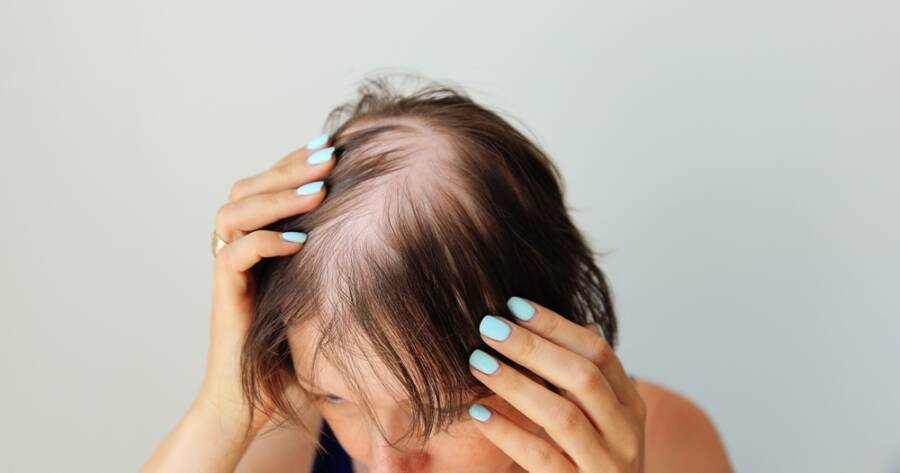The realm of alopecia areata treatment is evolving through innovative therapies that are changing the landscape for individuals facing this autoimmune condition. While established methods play a crucial role, advancements such as Janus kinase inhibitors bring renewed optimism. New approaches, including low-dose oral Minoxidil, PRP therapy, and stem cell innovations, broaden the scope for hair regrowth.
Innovative Therapies Transforming Alopecia Areata Treatment
Alopecia areata, an autoimmune disorder causing unpredictable hair loss, has seen a transformative evolution in treatment options. Traditional methods like corticosteroids and immunosuppressants continue to be fundamental, but newer therapies offer promising advancements.
One such innovative approach involves Janus kinase (JAK) inhibitors, such as Olumiant (baricitinib), recently approved by the FDA for severe cases and are becoming a significant part of cutting-edge treatments. By targeting specific pathways that contribute to hair loss, JAK inhibitors provide a novel solution for this challenging condition.
Cutting-Edge Options for Hair Regrowth
In addition to JAK inhibitors, several other novel techniques are emerging. Low-dose oral Minoxidil has shown efficacy across various forms of hair loss, with hypertrichosis as a common side effect.
Furthermore, Platelet-Rich Plasma (PRP) therapy is increasingly used despite its variable results and incompletely understood mechanisms demonstrating its growth in popularity. Stem cell therapy is another frontier in alopecia treatment, aiming to regenerate hair follicles in non-scarring alopecias, including alopecia areata.
Innovative Complementary Treatments
Innovative treatments also extend into less invasive options. Sonic wave therapy, non-invasive and pain-free, uses sound waves to stimulate hair follicles, enhancing blood flow and delivering nutrients to the scalp.
Microneedling works by sustaining micro-injuries that boost collagen production and improve circulation, ideally when combined with other therapies offering complementary approaches to traditional treatments. These options provide a spectrum of therapeutic avenues for individuals seeking alternatives to conventional methods.
Advanced Topical Solutions and Functional Medicine
Recent advancements in topical solutions incorporate ingredients like peptides and growth factors that target hair loss at a cellular level. By nourishing the scalp and reducing inflammation, these solutions stimulate hair follicles for optimal regrowth.
In parallel, a functional medicine approach addresses internal imbalances such as gut health and hormonal issues. The Holistic Hair Reboot Program exemplifies this approach, aiming to restore balance for durable hair health rather than temporary fixes highlighting the complexity of treatment.
Emotional and Psychological Support
Alopecia areata’s psychological impact is profound, necessitating support mechanisms for affected individuals. Emotional support groups and counseling play a vital role in helping patients adapt to changes in their appearance and improve their quality of life.
Given the potential stress associated with hair loss, incorporating stress management techniques, a balanced diet, and good scalp hygiene into daily routines is crucial. These strategies can help prevent further hair loss and manage the condition effectively.
The Role of Medical Innovation
The Alopecia Center of Excellence at Mount Sinai is at the forefront of alopecia research, contributing to advancements in diagnosis and treatment. With ongoing clinical trials, the center focuses on developing new therapies, including recent FDA approvals of drugs like ritlectinib and deurxuolitinib driving medical innovation forward.
Continued research and trials offer hope for patients who have not responded to existing therapies, emphasizing the importance of personalized treatment plans and a more profound understanding of disease mechanisms.
Why You Should Learn More About Alopecia Areata Treatment Today
The landscape of alopecia areata treatment is rapidly evolving with innovative therapies offering new hope for those affected. From advanced pharmaceuticals like JAK inhibitors to non-invasive strategies such as sonic wave therapy and microneedling, options for managing this condition are expanding. Moreover, emotional and psychological support systems are vital for coping with the disorder’s impact.
As research progresses, incorporating these cutting-edge solutions and understanding comprehensive care approaches become increasingly crucial for improving patients’ quality of life. This focus on innovative therapies underscores the potential for individuals to regain confidence and achieve lasting hair regrowth.




